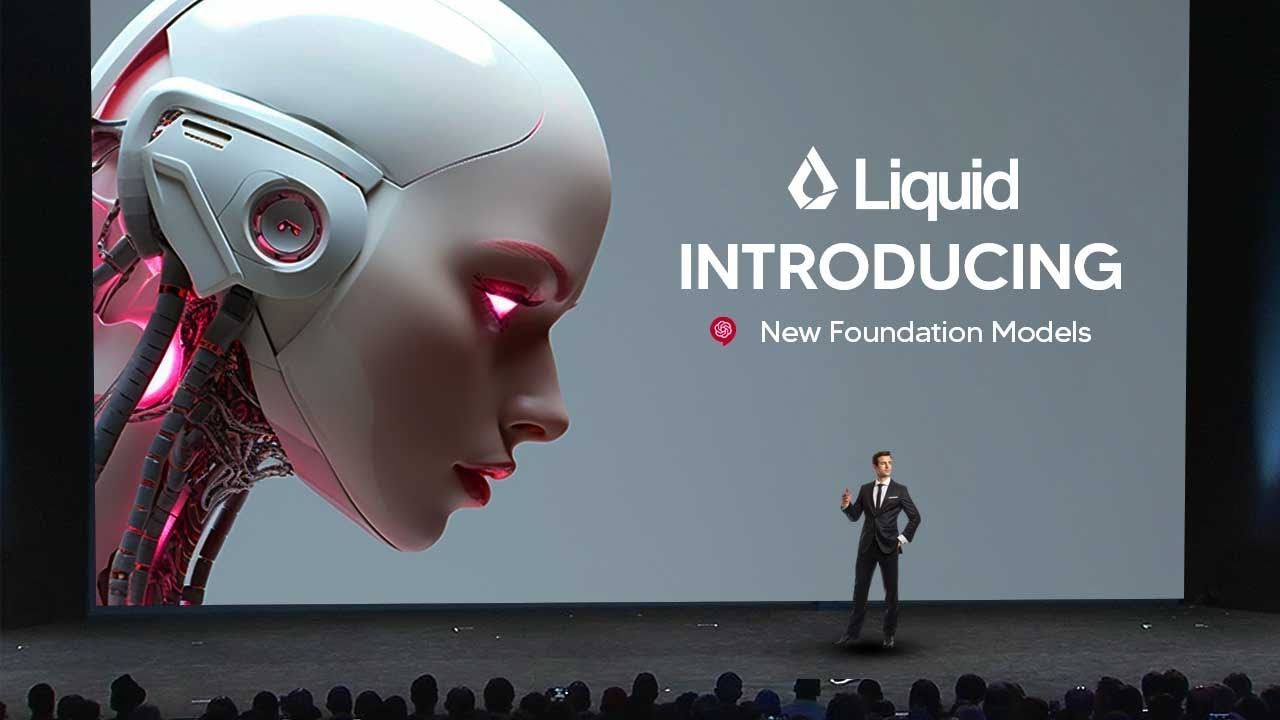The video introduces Liquid Foundation Models (LFMs), a new generation of generative AI developed by Liquid AI, which offers enhanced efficiency and performance with a smaller memory footprint, making them suitable for on-device applications. LFMs are versatile, capable of handling various tasks across multiple domains, and can operate offline on low-power hardware, aiming to empower businesses with tailored AI solutions.
The video discusses the introduction of Liquid Foundation Models (LFMs), a new generation of generative AI models developed by Liquid AI. These models are designed to enhance efficiency and performance compared to traditional AI models, particularly those based on Transformer architectures. LFMs are characterized by their state-of-the-art efficiency while maintaining a smaller memory footprint, making them suitable for on-device applications. This reduces reliance on cloud services, thereby lowering costs and energy consumption. The novel architecture of LFMs allows for dynamic and efficient information processing, enabling them to handle various tasks such as natural language processing, audio analysis, and video recognition.
The webcast highlights the mission of Liquid AI to create capable and efficient AI systems that can scale across different applications. The LFMs are designed to unlock better capabilities even with smaller parameter sizes, challenging the traditional scaling laws of AI. The company has released several models, including a 1.3 billion parameter model, a 3 billion parameter language model, and a 40 billion mixture of expert system, all aimed at providing general-purpose computing solutions. The LFMs are rooted in control theory and signal processing, representing a significant shift in how AI systems are conceptualized and developed.
The video also emphasizes the importance of quality and efficiency in LFMs. The team at Liquid AI has developed a holistic framework for model design that considers not only the architecture but also the data, training algorithms, and evaluation methods. This approach allows them to deliver high-quality models without sacrificing efficiency. The LFMs are designed to handle complex tasks, multi-step reasoning, and long context capabilities, making them versatile for various applications. The team has implemented rigorous internal evaluations to ensure the models meet high standards of performance.
In addition to language models, Liquid AI is expanding its offerings to include multimodal LFMs that can process audio and visual data. The company is also developing a library of LFMs that can be applied to diverse fields such as biology, finance, and autonomous driving. For instance, the Bio LFM can generate new proteins, while the Drive LFM can simulate real-world driving scenarios. The Transaction LFM is designed to analyze transaction sequences for fraud detection, showcasing the versatility and applicability of LFMs across different industries.
Finally, the video highlights the deployment capabilities of LFMs, emphasizing their ability to run on various devices, including low-power hardware like Raspberry Pi. The models can operate offline, ensuring privacy and security for sensitive applications. Liquid AI aims to empower businesses by providing tailored AI solutions that can be deployed directly where they are needed, enhancing customer service and operational efficiency. The presentation concludes with a demonstration of the LFMs’ capabilities, showcasing their potential to revolutionize AI applications across multiple domains.
